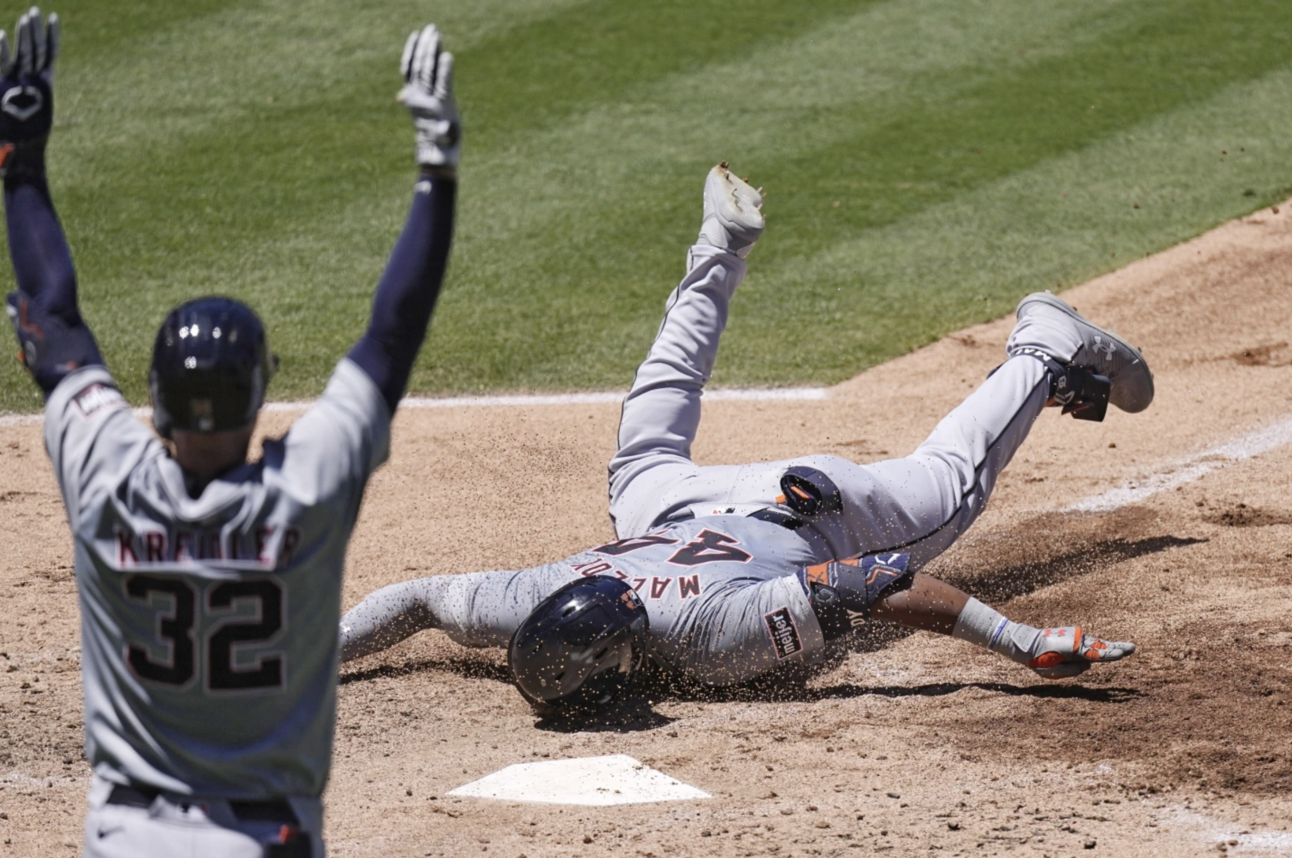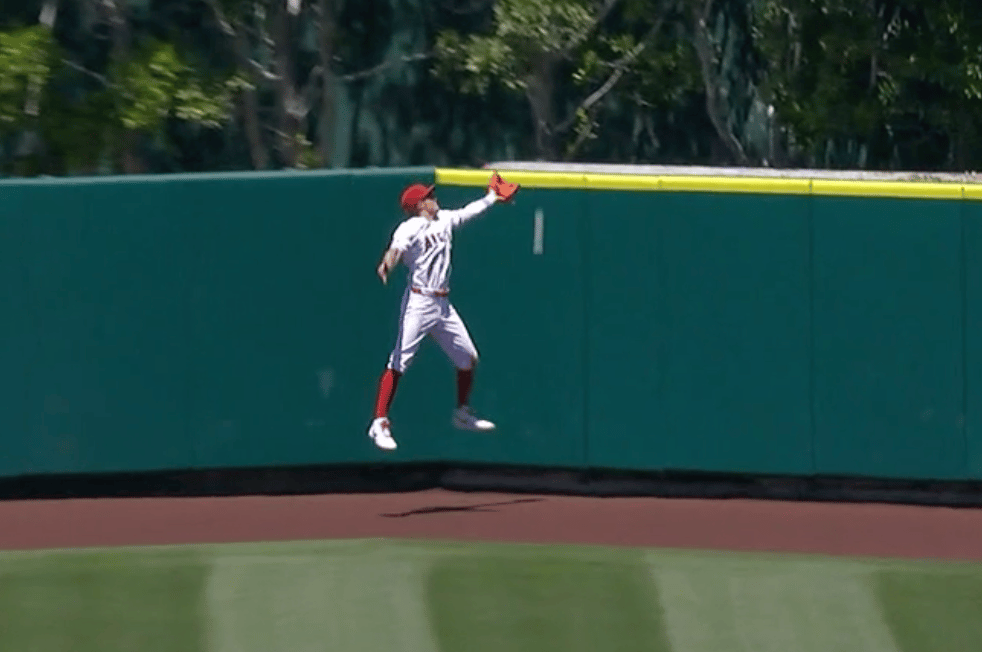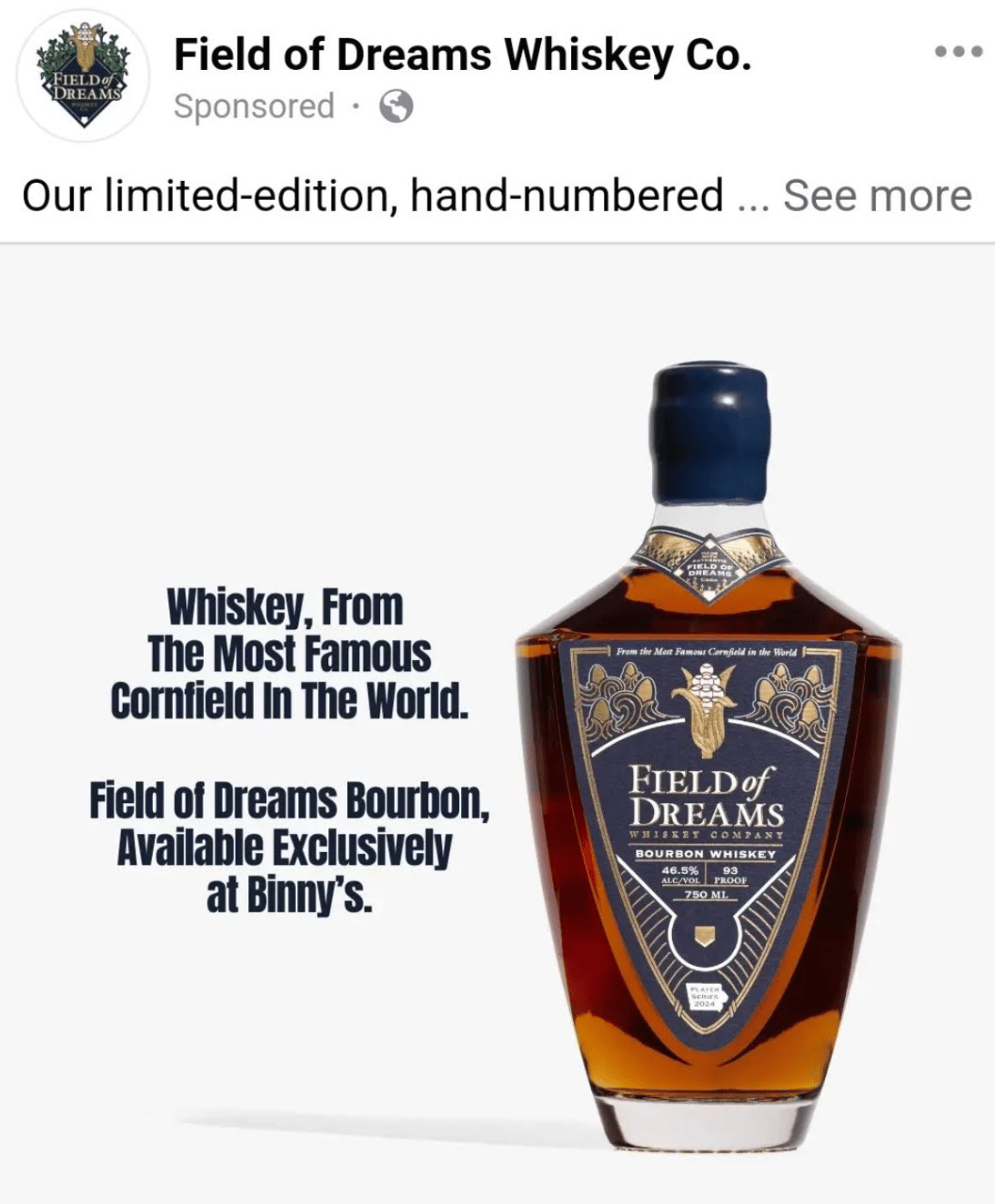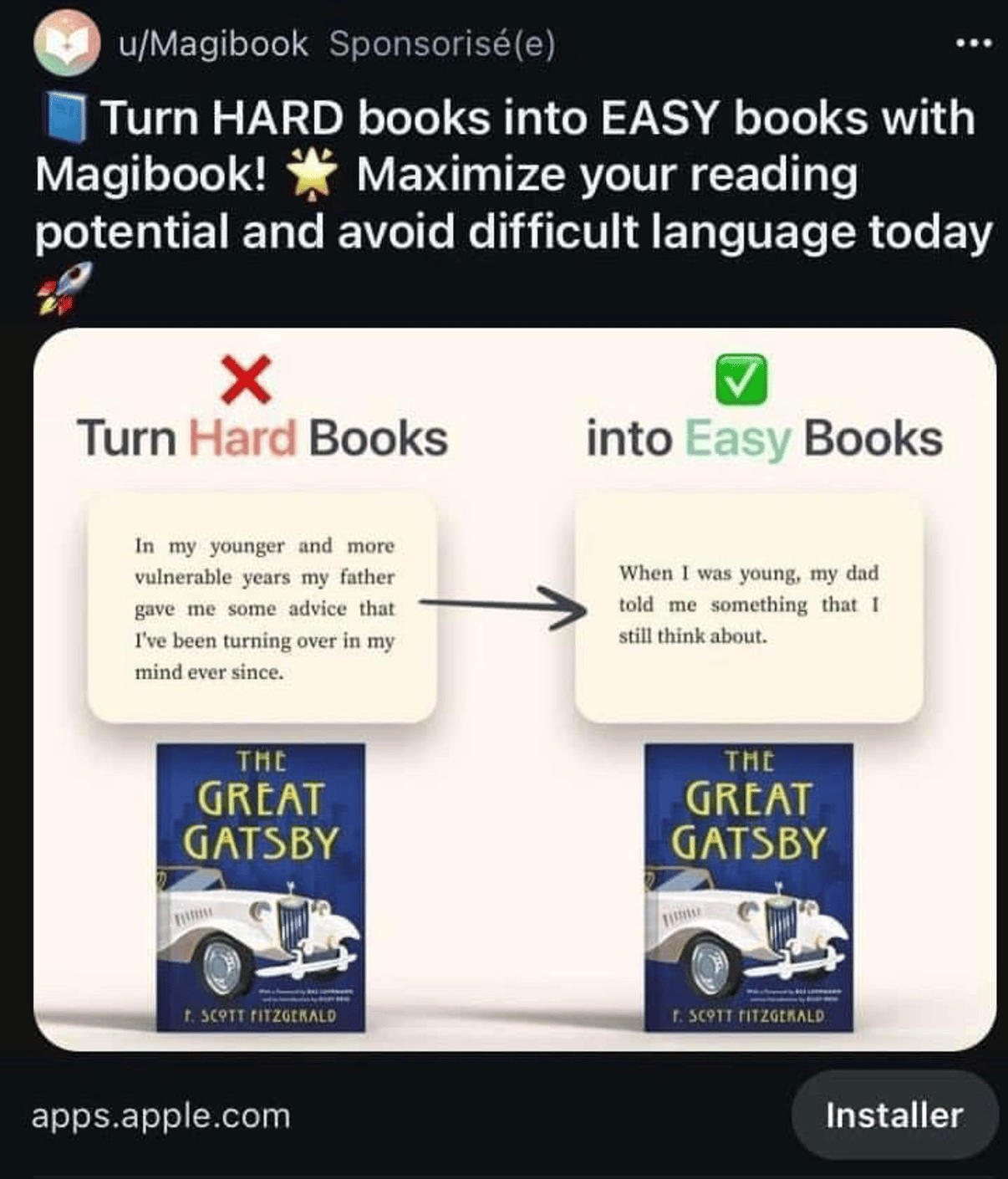Cup of Coffee: July 1, 2024
New Derby rules, the Phillies lose a couple of sluggers, Oakland, Field of Dreams bourbon, Orlando Cepeda, Martin Mull, and two VERY bad Supreme Court decisions

Good morning!
Today: there are new rules for this year’s Home Run Derby. The Phillies have a couple of big guns on the IL. We had another in-game interview-induced miscue. In Oakland a political crisis could lead to an opportunity. Maybe. Field of Dreams Bourbon is on sale, so yay? And we bid adieu to Orlando Cepeda.
In Other Stuff, we encounter some more unnecessary technology, we mourn the loss of Martin Mull, and I spend a lot of time explaining why Friday’s Supreme Court decisions were oh so very bad.
And That Happened

Here are the scores. Here are the highlights:
Pirates 4, Atlanta 2: Oneil Cruz and Rowdy Tellez each hit a two-run homer in the fifth inning to account for all of Pittsburgh’s scoring and to help the Pirates avoid the sweep. The only downside of the day for the Buccos was that Bryan Reynolds’ 25-game hitting streak ended.
Phillies 7. Marlins 6: Philly lost an early lead and then fell behind by four runs before mounting a rally between the fifth and seventh innings. Nick Castellanos doubled in a run and singled in two as a part of that and then Trea Turner hit a go-ahead, two-run single in the seventh to cap it off. The Phillies earned the split.
Red Sox 4, Padres 1: Boston salvages one in the series and ended San Diego’s five-game winning streak. Rafael Devers hit a two-run homer and Jarren Duran hit a solo shot. Josh Winckowski gave up four hits over five scoreless innings to pick up the win.
Yankees 8, Blue Jays 1: Aaron Judge hit his MLB-leading 31st home run. The dude hit .409 in June with 11 homers and 37 RBI. Juan Soto was a late addition to the lineup after sitting out Saturday’s game due to a bruised right hand. He went 1-for-3 with an RBI and a couple of walks. Gerrit Cole bounced back from his first couple of crappy starts to allow one run over five and to pick up his first win of the season.
Astros 10, Mets 5: A five-run 11th inning — which came after a nearly three-hour rain delay in the ninth inning — means that Houston has won nine of ten and is now above .500 for the first time all year. This was fun: in the seventh inning Jose Altuve appeared to foul a ball off his left foot. The ball bounced to third and the third baseman threw to first. Altuve remained around the batter’s box, hopping around due to, you know, the ball hitting his foot. Umpire James Jean, however, failed to signal a foul ball so Altuve was out. For reasons that are not at all clear to me, whether a ball hits a batter’s foot is not replay reviewable, so the umps conferred but the call stood and Altuve was out. He blew up when the call was confirmed and was ejected.
The strangest part to me: Altuve has only been ejected from a game twice in his entire 14-year career. Once arguing balls and strikes in 2016 and then yesterday. I’m a fairly mild-mannered guy and I probably couldn’t go all year without getting ejected twice.
Rays 5, Nationals 0: Tampa Bay starter Taj Bradley pitched shutout ball into the sixth, striking out 11. Four relievers pitched hitless ball for the final three and a third frames for the shutout, adding another five Ks. Isaac Paredes, José Caballero, and Randy Arozarena all homered. The Rays take two of three. According to the game story the Rays have now reached .500 17 times this year, but they haven’t been over .500 since May 21. I respect such a commitment to mediocrity.
Brewers 7, Cubs 1: Milwaukee scored all seven of their runs in the fourth inning with Brice Turang’s grand slam bringing in most of ‘em. Milwaukee has had a lot of grand slams of late: five in their past eight games, in fact. I’m guessing there are a lot of teams who have gone whole seasons without getting five grand slams. Freddy Peralta, meanwhile, allowed just one run on two hits over seven. Milwaukee takes two of three and has won six of their last seven games.
Royals 6, Guardians 2: Salvador Perez hit a two-run homer, Bobby Witt Jr. had three hits on the afternoon, including an RBI triple, and Seth Lugo picked up his big league-leading 11th win of the year. The Royals were kinda flailing for a bit into last week but taking three of four from the division champs shows they aren’t gonna roll over.
Rockies 5, White Sox 4: You don’t see a lot of 14-inning games these days, what with the Manfred Man. At the same time you don’t wanna see any more White Sox or Rockies baseball than is strictly necessary, so this one was trouble all around. It ended with Michael Toglia knocking in Colorado’s fifth Manfred Man of the day with a sac fly. Earlier in extras Rockies center fielder Brenton Doyle made a terrific lay-out catch of what would’ve been a Tommy Pham walkoff single. The Rockies avoided the sweep.
Cardinals 2, Reds 0: Lance Lynn allowed two hits over six shutout innings and three relievers completed the two-hitter. Alex Burleson singled in one of St. Louis’ two runs and Masyn Winn doubled in the other. Weird and neat thing for the Reds: Jonathan India extended his hitting streak to 12 games with a double in the third. The weird and neat part of that is that he has at least one double in each of his last eight games. I think an eight-game double streak is way cooler than a 12-game hitting streak. I could be wrong about this because I had to Google for the answer, but I’m pretty sure Bo Bichette is the Joe DiMaggio of doubles streaks. He hit a double in a nine consecutive games in 2019, so India can tie some history in his next game.
Giants 10, Dodgers 4: Speaking of doubles, the Giants hit ten of them in this game. Matt Chapman homered and drove in three. James Paxton gave up nine of those ten runs and 12 of the Giants 16 hits in his four innings worth of wearin’ it. The Giants take two of three.
Tigers 7, Angels 6: Carson Kelly hit a three-run homer and Justyn-Henry Malloy hit an inside-the-park job, with the unnecessary face-plant pictured above the end result. The dinger itself came thanks to this effort from Angels center fielder Mickey Moniak, followed by the expected ricochet:

The Angels scored five runs bottom of the ninth, and that was pretty nifty, but the would-be comeback fell short. The loss ended their six-game winning streak.
Twins 5, Mariners 3: Trevor Larnach hit a tiebreaking two-run homer in the eighth. That extend Minnesota’s home run streak to 19 games, which is the longest in the franchise’s history. Larnach also had an RBI single, Jose Miranda had a two-run single of his own, and Austin Martin had an RBI double as the Twins take two of three from the M’s.
Diamondbacks 5, Athletics 1: Brandon Pfaadt pitched six innings of one-run ball and Blaze Alexander hit a two-run single during Arizona's three-run seventh. Christian Walker added the third run that frame with an RBI knock. He had singled in the Snakes’ first run in the game back in the fourth. Geraldo Perdomo doubled in the final run in the eighth as the Dbacks take two of three.
Rangers 11, Orioles 2: That was a blowout. Derek Hill hit two homers — a two-run job in the second and a solo shot in the fifth — and Wyatt Langford hit for the cycle, capped by a a three-run shot in the eighth. He had four RBI on the evening, so I’m sure he slept well. Andrew Heaney, meanwhile, pitched seven solid innings, allowing just two runs, and striking out ten. Texas avoids a four-game sweep and puts an end to its six-game losing streak.
The Daily Briefing
The Home Run Derby rules have changed
Last night Major League Baseball and ESPN announced a new format for this year’s Home Run Derby. The intent here is to slow down what is usually a frantic pace that has tended to tire out batters early. Changes of note:
- Gone are the head-to-head matchups in the first round. Now all eight players will compete against each other in the first round, with four players advancing;
- Hitters get three minutes or 40 pitches, whichever comes first, and one timeout. Ties are broken using the longest individual home run distance;
- There are also three bonus outs, basically, as after their three minutes or 40 pitches are up, contestants continue swinging until they make three more outs. Players can earn a fourth bonus out with a 425-foot homer in bonus time;
- For the semifinals, the four remaining players are seeded 1-4 using first round home run totals. Then it's the same rules as the first round: three minutes or 40 pitches, one timeout, plus three bonus outs with the opportunity to earn a fourth; and
- In the finals, the two semifinal winners go head-to-head, obviously. The finals are only two minutes or 27 pitches, with one timeout. The same bonus outs rules apply.
These changes were made because, in recent years, players have complained the Home Run Derby is too exhausting. Under the old rules, hitters would rush to get as many swings in as possible, leading to fatigue. With a pitch limit, it’ll be more about what you do with each pitch as opposed to just mashing as fast as you can.
It’s too early to know if these rules changes will lead to greater participation among the league’s elite sluggers. For now Gunnar Henderson of the Orioles is the only player to have committed. He did so yesterday. Shohei Ohtani said he wants to do it, but he needs to be cleared medically, and it’s not clear if that’ll happen. Aaron Judge leads the league in homers but he has already said he will pass, as he has every year since he won it as a rookie back in 2017.
Harper, Schwarber hit the injured list
As expected, Phillies sluggers Bryce Harper and Kyle Schwarber both hit the injured list on Friday. Harper tweaked his hamstring running out a ground ball on the final out of Thursday’s game. Schwarber strained his groin while making a throw from the outfield he has very little business patrolling.
The good news is that Harper’s hamstring strain is, per the Phillies, low-grade, so he could be ready to go as soon as the required 10 days are up. In the meantime Kody Clemens will fill in at first base against righties and Alec Bohm will play first against lefties, with Edmundo Sosa covering third.
As far as Schwarber goes, time is TBD. As with Harper, the Phillies are hoping he can just sit the ten days and be good to go. Honestly, though? I’d sit both of them through the All-Star break just to be sure they’re healed up properly. What else are eight-game leads for?
We had another in-game interview-induced miscue
A couple of weeks ago Kiké Hernández misplayed a ground ball while doing an in-game interview on the oh-so-interactive Friday Apple TV+ broadcast. It happened again this past Friday, when Houston Astros shortstop Jeremy Peña misplayed a fly ball during an in-game interview of his own, also on the Apple TV+ broadcast. You can watch the ball drop here.
For those not clicking through, the Mets’ Jeff McNeil popped up between second and third in the bottom of the second inning. Peña, who had been shaded toward second, ranged to his right while third baseman Alex Bregman ranged to his left. Neither Peña nor Bregman put his glove up to try to make the catch and the ball landed between them.
Subscriber David F. was watching the game and said he believes that Peña didn’t yell “I got it!” or assert himself more because he was mic’d up. I could see that. Something done sort of unconsciously, like not yelling into a phone or whatever. At the very least you gotta wonder if he, like Hernández two weeks ago, was distracted by talking to the broadcasters.
Could Oakland political strife allow for an A’s return?
Oakland’s mayor, Sheng Thao is currently the subject of a recall election in November. Her campaigning for that election may be complicated to some degree, however, by the fact that the FBI raided her home recently in connection with an investigation into illegal political contributions from a recycling firm. I don’t live in Oakland so I don’t have much of an opinion about that, but this from the San Francisco Chronicle is interesting:
Sources close to Oakland politics tell us that if the Town were to get a new mayor, the change might provide an opportunity for the A’s and Oakland to discuss a reunion. Some of Thao’s allies are hostile to MLB and Fisher. If Thao goes, the scenery changes. Some turnover in the city council also would help, because Fisher and MLB felt hostility from that body, but a change of mayors could get Fisher’s and MLB’s attention, especially if their Vegas plans falter.
On the one hand, I’d like to see John Fisher continue to twist and flail and never get anything he wants. On the other hand, the A’s belong on Oakland, and if this could conceivably lead to the whole Sacramento/Las Vegas two-step not happening, it’d be the best outcome. Especially if a deal is struck that is contingent on Fisher selling the team to an ownership group that is committed to staying in Oakland.
All that being said: this seems more like a pipe-dream than anything. It’s not like the mayor was the person who scuttled a ballpark deal. Fisher did. He’s made way more enemies than just Sheng Thao. So let’s put this in the wishing-and-hoping file and see what happens.
“Field of Dreams” bourbon
Just around a year ago I shared a story about how retired relievers Drew Storen and Tyler Clippard have gotten into the bourbon business. Specifically, they’re bottling something called “Field of Dreams” bourbon, which is allegedly made from the corn from the cornfields seen in the 1989 alleged cinematic classic, “Field of Dreams.” I had completely forgotten about that, but over the weekend one of you shot me a screencap of it being sold in the wild:

You can buy it here is you want. They want $69.99 for it. I can think of things I’d rather spend $69.99 on, but I’d probably try a glass of it if I saw it out in the world because, in my line of work, virtually everything is content.
Given that it’s being sold exclusively at Binny’s I imagine I could track some down the next time in Chicago. If any of you do drink some, I’d happily relay your review of it to the Cup of Coffee Community.
Orlando Cepeda: 1937-2024
Hall of Famer, 1958 National League Rookie of the Year, and 1967 National League MVP Orlando Cepeda — “The Baby Bull” — has died. He was 86. Cepeda's wife Nydia released a statement saying, “Our beloved Orlando passed away peacefully at home this evening, listening to his favorite music and surrounded by his loved ones. We take comfort that he is at peace."
Cepeda, a native of Puerto Rico, spent parts of 17 seasons in the majors with the Giants, Cardinals, Atlanta, Athletics, Red Sox, and Kansas City Royals. He was a career .297/.350/.499 (133 OPS+) hitter with 379 home runs, 142 stolen bases, and 1,365 RBI.
In his MVP season in 1967 Cepeda hit .325/.399/.524 (164 OPS+) with 25 homers and 111 RBI while helping lead the Cardinals to a World Series title. He also played on the Giants 1962 and the Cardinals 1968 NL pennant-winning clubs. In 1973, with the Red Sox, Cepeda was the inaugural winner of the Designated Hitter of the Year Award, which is now known as the Edgar Martínez Award. Cepeda is one of only two players in NL history to win both Rookie of the Year and MVP unanimously. The other: Albert Pujols. He was an 11-time All-Star and was elected to the Baseball Hall of Fame in 1999.
Cepeda was not just notable for what he could do at the plate. As one of the first big stars to come from Puerto Rico, he was an advocate for his Afro-Latino and Black teammates, many of whom faced discrimination and adversity even into the 1960s. This was particularly true of players on the Giants who played under manager Alvin Dark, a virulent racist, in the early 1960s. Dark specifically singled out Cepeda and Dominican-born Jesús Alou in an infamous newspaper article in 1964. Cepeda had no compunction about calling out Dark and defending his Black and Latino teammates who were the subject of Dark’s blatant discrimination and bigotry. Dark was fired at the end of the year. Cepeda continued on in the game, forging his Hall of Fame legacy.
An excellent, comprehensive bio of Cepeda by Mark Armour can be read over at the Society for American Baseball Research website.
Rest in peace Orlando Cepeda.
Other Stuff
Thanks, technology

This is what happens when you view everything in the scope of human endeavor as data and believe that all data should be delivered with maximal efficiency. This is also what happens when you spend decades denigrating the arts and humanities as valueless.
Martin Mull: 1943-2024

Martin Mull died Thursday at his home after a long illness. He was 80.
Mull was in all kinds of great things over the course of his long and varied career. I was a bit too young for “Mary Hartman, Mary Hartman” and its spinoff “Fernwood 2 Night,” where he gained initial fame, but from his early movie appearances in things like “Mr. Mom,” to a fairly brilliant mid-80s mockumentary called “The History of White People in America,” to “Clue” to his roles on “Roseanne” and “Arrested Development,” Mull always delivered. The key to Mull’s humor was his unassuming appearance and demeanor combined with a bone-dry sensibility that almost always proved to be subversive and a bit left-of-center.
While “Clue” is one of my favorite 1980s movies and Mull was fantastic as Col. Mustard, I think one of my favorite parts of his was as the incompetent private investigator, Gene Parmesan, on “Arrested Development.” His bits were good, to be sure, but the best part about his character was how the show used him to show a completely different and unexpected side of the otherwise bitter, dour, and manipulative Lucille Bluth, who would grow outrageously excited every time Parmesan would appear, usually in a bad disguise which fooled only her.

I’d like to imagine that that’s the face Jessica Walter, the late actor who played Lucille, made when Martin Mull arrived in Comedy Actor Valhalla on Thursday.
Rest in peace, Martin Mull.
We’re in a new world now
I am not someone who is prone to panic, especially when it comes to the legal system. There are yins, there are yangs, there is nuance that lay people don’t fully grok, and there are a million steps to any given process. That usually means that I don’t get all that worked up when some law is passed or some court decision comes down. It’s almost always more complicated, and is often less ominous, than it first appears.
But that’s not the case with the Supreme Court’s decision in the Loper Bright Enterprises v. Raimondo case that came down on Friday morning. It’s a disastrous and dangerous case. Far more disastrous and dangerous than most people understand. It is not hyperbole to say that the decision will end up killing thousands of people and immiserating millions. All so corporations can make more money and operate with fewer regulatory constraints.
Loper overrules a 1984 case called Chevron v. Natural Resources Defense Council. The Chevron decision, boiled down to its basics, established a principle which holds that (a) policy choices, particularly complicated or technical policy choices, should be made by people who know what they are doing; and (b) that the policymakers in question should answer to an elected official (i.e. the president) so they can be accountable to the American people. It would be wrong, the Chevron court argued, for federal judges who (a) know nothing about the substantive regulatory policies at play; and who are (b) not answerable to voters due to their lifetime appointments, to make those calls. As such, federal judges should generally defer to policy and regulatory decisions made within the executive branch.
Here, via Ian Millhiser’s breakdown from last January over at Vox, is a very simple breakdown of how things have worked over the past 40 years under Chevron:
- Congress passes a law, such as the Clean Air Act. The Clean Air Act requires that certain types of power plants use “the best system of emission reduction” that currently exists.”;
- Congress is full of rich guys and lawyers and car dealers and stuff. They know fuck all about systems of emission reduction. Members of Congress know they lack such knowledge and, because obtaining such knowledge is as boring as hell and keeps Congressmen from going to parties, they happily delegate that analysis to the Environmental Protection Agency in the executive branch;
- By virtue of such delegation, the EPA then decides the “best system of emission reduction” and issues binding rules about such things. These are what are known as “regulations.” Regulations can be updated and amended as technology evolves and the matter being regulation is better understood. Or, for that matter, as the policy priorities of the current president who is, of course, charged with “executing” the law, changes and evolves;
- If experts disagree on a regulation, or if a regulated company or entity takes issue with an agency’s decision, there exists a process for settling the dispute which involves administrative law judges, themselves experts on the matter at hand, to make a determination of how things should go. Aggrieved parties are required to go through that administrative law process;
- If the aggrieved party still does not like where it is at the end of that process it can appeal to a regular federal court. But here’s the important part: the Chevron case from 1984 established the idea that when the federal law delegating regulatory power to an agency is ambiguous about a given regulated matter — if either of two outcomes is possible under the law — courts should defer to the agency’s interpretation of the law. They should defer to and trust the experts. Aggrieved parties should not be able to simply shop for a nice conservative judge who gets a hard-on from striking down federal regulations, of which there are now many.
As of Friday, however, everything has changed. As of now, aggrieved parties can and will file lawsuits in federal court seeking to invalidate all manner of regulations, the federal judges will need not pay any attention to what the experts at the regulatory agency think or want because, as Justice Roberts mendaciously and shamelessly held, “agencies have no special competence” and that judges should determine the meaning of federal laws instead. John Roberts’s Supreme Court will now have the final say. A Supreme Court which has made the advancement of conservative political, economic, and social causes to be virtually its only mission. And which has nothing approaching competence regarding any substantive area of public policy beyond the advancement of said causes.
The consequences of Loper will take some time to be felt but will last for decades or even longer.
Think of every useful regulation that has ever been passed. Environmental protections. Matters of public health. Workplace safety. Construction standards. Disability protections. Now try to think of a single one of those regulations that was not objected to by business interests. If you can think of even one, you’re lying, because every single regulation ever has been objected to by business interests because business interests believe they should not be subject to regulation. All of those regulations are now in the crosshairs of business interests and conservative state attorneys general who view government as the enemy.
As a result of this decision America’s environmental standards will be degraded. Drinking water standards will be degraded. Food and drug safety will be degraded. Consumer product safety will be degraded. Workplace health and safety policies will be degraded. Building standards will be degraded. Health care policies will be degraded. Agricultural and soil management will be degraded. Oversight of the finance and securities markets will be degraded. Government’s oversight of virtually every other area of American endeavor will be hamstrung as well, and we’ll be blasted back to the Gilded Age of robber barons, child labor, polluted skies, soils, and waterways, crop failures, and far more pernicious cycles of recessions and depression. We will see greater inequality, more people suffering from serious deprivation, and lower life expectancies as well.
Which, it should be noted, is something conservatives have been seeking to achieve for the past 50 years. Now they have it. America as we’ve known if for most of our lifetime will slowly go away and a new, more brutal, more dangerous, more polluted, and more callous country will arise. And the only ones who will benefit are the wealthy, who will be able to buy their way out of suffering the consequences of their policy choices.
And while they were at it . . .
Just before issuing the Loper decision, the Supreme Court ruled that cities can enforce so-called anti-camping bans, which means they can arrest homeless people and charge them with crimes for sleeping outside even if said “campers”/homeless people have nowhere else to go. They have essentially criminalized homelessness.
Setting aside how utterly fucking callous and cruel such a ruling is — and that, by far, is what this decision will stand infamous for — its reasoning is farcically incoherent legally speaking. Indeed, it’s almost as if the conservatives on the Supreme Court are taunting us. From the opinion:
“The Constitution’s Eighth Amendment serves many important functions, but it does not authorize federal judges to wrest those rights and responsibilities from the American people and in their place dictate this Nation’s homelessness policy.”
And then, twenty minutes later, the Supreme Court grabbed virtually all of our nation’s regulatory policy for itself based on the notion that regulatory agencies “have no special competence,” thereby necessitating judicial control of such matters.
It’s almost as if the Court first decides which policies it wishes to advance and which policies it wishes to discourage and works backwards from there to fabricate whatever fig leafs of legal theory to which it pretends to be adhering. Either way, the takeaway is clear: it’s better for ignorant people with an agenda and no accountability to make the rules of society than it is for experts with accountability to do so. But, in all cases, the will of the cruel and the callous takes precedence.
We’re lost, folks. We’re adrift. As the conservative movement and the Supreme Court over which it has taken control advances its greedy, cruel, and shameless agenda, the things you believe America to stand for are slipping away, one by one. Ignorance is now strength. Expertise is now the enemy. Accountability is anathema. Principles are unnecessary.
I wish that I was wrong about this but I really don’t think I am.
Have a great day everyone.




Comments ()